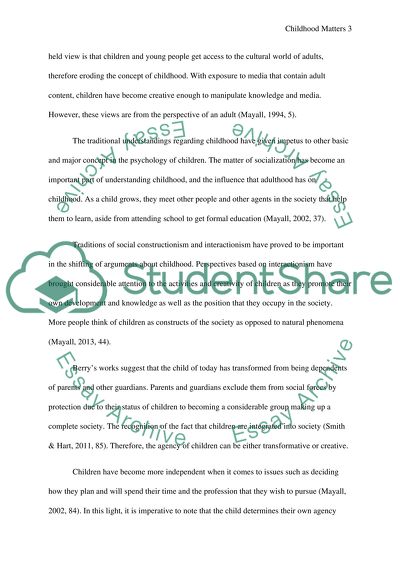Cite this document
(“CHILDHOOD MATTERS Essay Example | Topics and Well Written Essays - 1000 words”, n.d.)
Retrieved from https://studentshare.org/sociology/1660602-childhood-matters
Retrieved from https://studentshare.org/sociology/1660602-childhood-matters
(CHILDHOOD MATTERS Essay Example | Topics and Well Written Essays - 1000 Words)
https://studentshare.org/sociology/1660602-childhood-matters.
https://studentshare.org/sociology/1660602-childhood-matters.
“CHILDHOOD MATTERS Essay Example | Topics and Well Written Essays - 1000 Words”, n.d. https://studentshare.org/sociology/1660602-childhood-matters.


